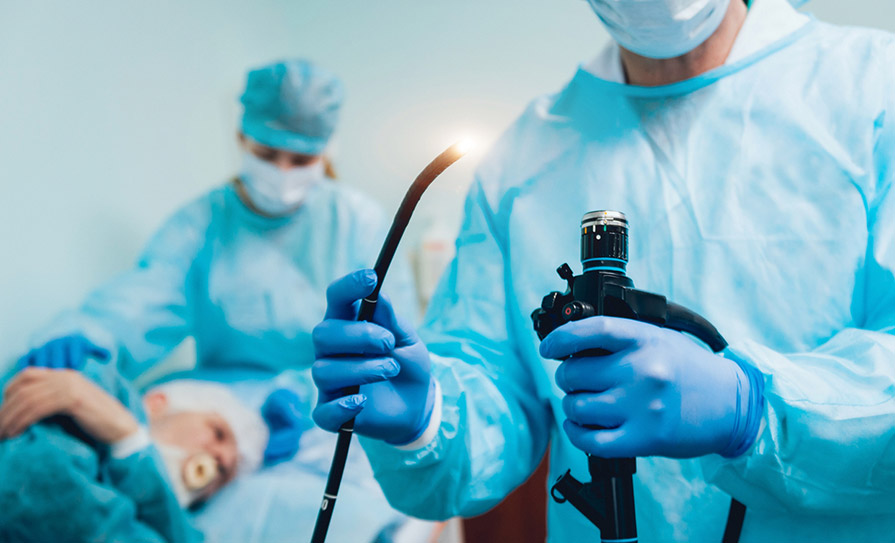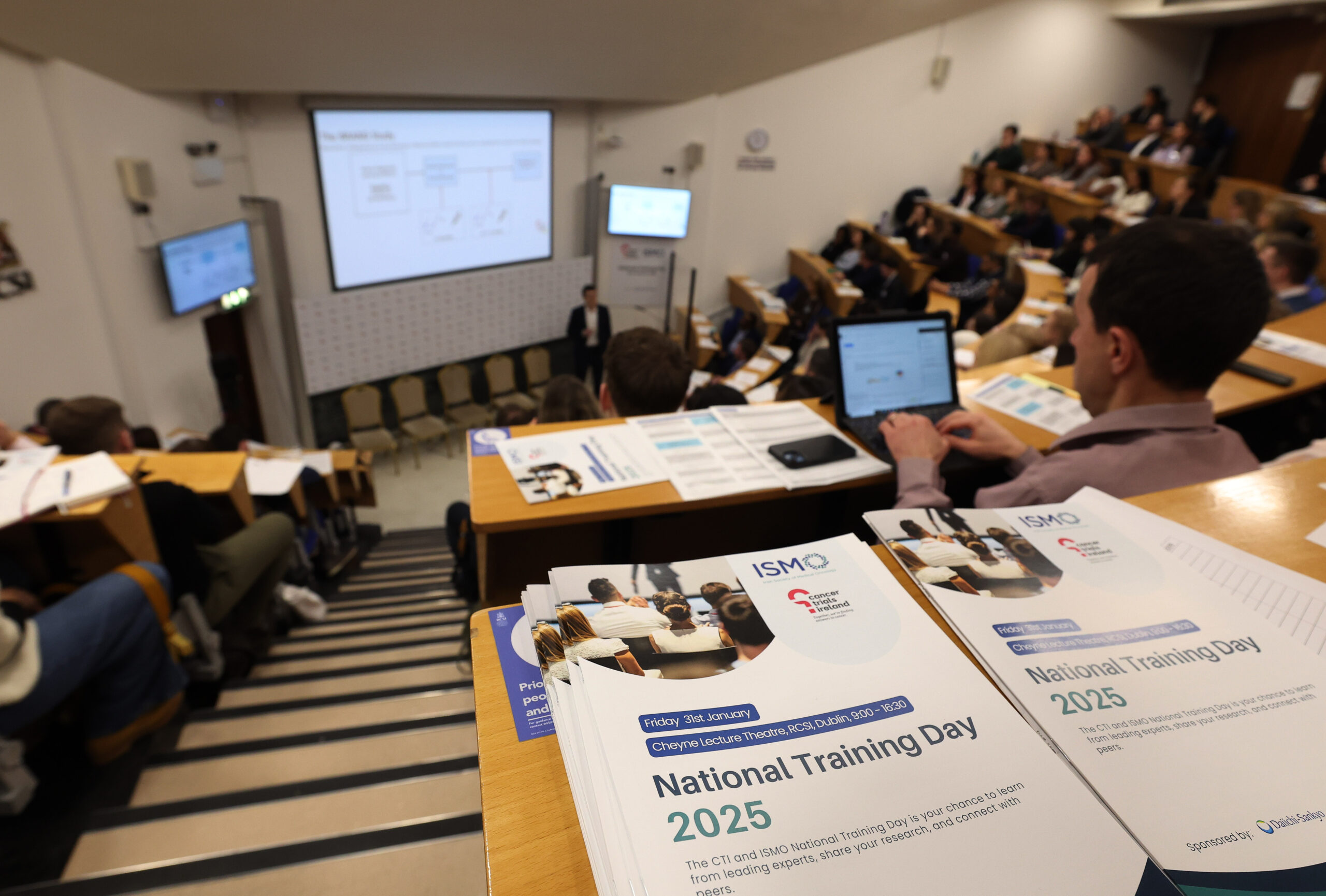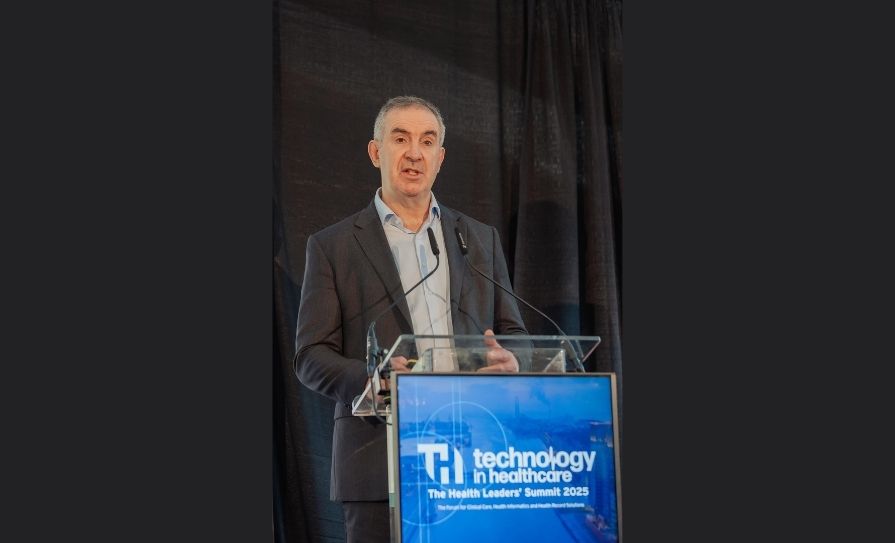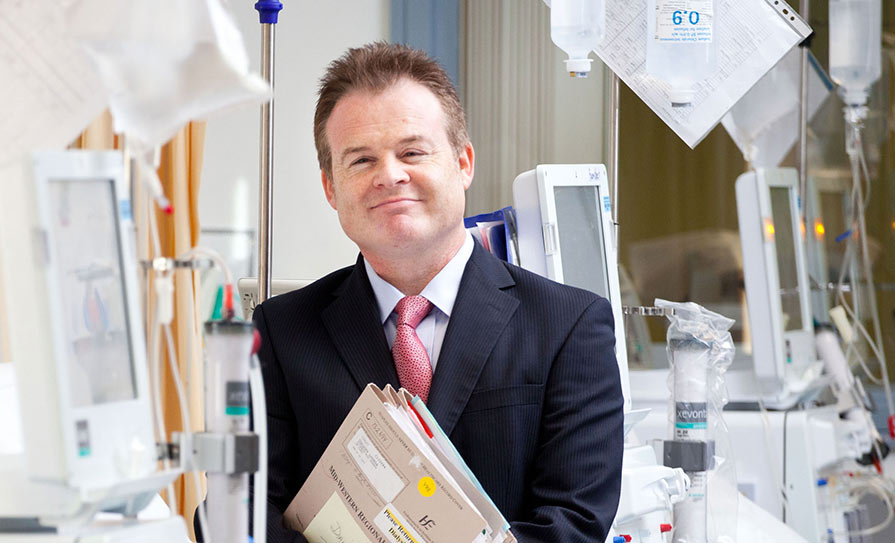Europe’s premier international endoscopy meeting, ‘ESGE Days’, takes place in Dublin this month.
ESGE President Prof Helmut Messmann spoke with Pat Kelly about the significance of the event
The European Society of Gastrointestinal Endoscopy (ESGE) has gained in size and momentum since its inception in 1964 and is increasingly active in providing workshops, grant programmes, education, guidelines, and research, with the ultimate aim of promoting quality in endoscopy.
Its upcoming conference, titled ‘ESGE Days: Advancing Endoscopy, Forging Connections’, will take place in the Convention Centre in Dublin on 20-22 April. The conference will be a hybrid event, with a varied line-up of speakers and topics on every aspect of the specialty. The event will be hosted by the Irish Society of Gastroenterology (ISG), and the ESGE has extended its gratitude, particularly to ISG President Prof Deirdre McNamara, for providing “a true taste of the famous Irish hospitality”.
The event is also focused on the importance of the multidisciplinary team and will feature speakers from the European Society of Gastroenterology and Endoscopy Nurses and Associates and a new ESGE postgraduate course, which is a series of on-demand special educational sessions aimed at practising professionals at all levels, from trainees to qualified gastroenterologists.
ESGE President Prof Helmut Messmann spoke with the Medical Independent (MI) about the significance of the event for clinicians in this increasingly important specialty.
“Next year, the ESGE celebrates its 60th birthday, but the congress itself has existed since 2018,” he explained. “Many European organisations have their own congresses, such as the liver experts and specialists in inflammatory bowel disease, and they have thousands of people attending between them. So our congress is quite young in comparison – in 2018 in Budapest, we calculated that there were around 1,500 participants. We were in Prague for the last one and there were around 3,000 participants, and then Covid-19 happened and we had to cancel the 2020 conference in Dublin. The 2021 congress in Berlin was also cancelled, but now we are back to Dublin and we expect around 3,000 participants from more than 30 countries. This is the highest number of participants so far, and the oral abstracts and submissions numbers are also the highest so far. This shows that endoscopy interest is very high – during my presidency, the numbers of members has dramatically increased, from 2,000 members to almost 5,000. We also have a focus on the younger generations, so we have a lot more younger people who are becoming ESGE members.”
Younger Society members can potentially benefit from the hybrid format of this year’s congress, and can avail of a special postgraduate course with augmented learning. This year’s congress will also feature a dedicated EYE lounge and zone, which will provide an immersive platform and focused sessions. One of the much-loved features of each ESGE congress is the Friday night social function, which gives attendees important networking opportunities.
New developments
Prof Messmann also discussed the growth in the importance of the specialty, pointing out that endoscopy has increasing become a more minimally invasive alternative to surgery. “There have been a couple of new developments over recent years which show that endoscopy can replace surgery for a number of diseases,” he said. “It is similar to cardiology, in the sense that a lot of the more invasive procedures have been replaced by balloon dilatation for coronary diseases, for example. We now have a couple of options for minimally invasive procedures to replace surgery and this is certainly of huge benefit for the patient and endoscopists who are doing advanced endoscopy and using these minimally invasive options.”
Prof Messmann also spoke about the importance of using these procedures as a preventative measure and to help keep patients out of the hospital setting, thereby easing pressure on already stressed health systems. “In Germany, we have to change our thinking in this field,” he commented. “In Germany, many procedures are still performed as inpatients, which is quite expensive and you need a lot of nurses, and so on. So outpatient treatment is a better option for a number of reasons.”
The congress will also feature live endoscopy demonstrations from clinics in Hamburg and London, and Prof Messmann spoke about the interest these will generate for attendees. “The live endoscopy is always a matter for discussion – why should we show a procedure live? There are a couple of reasons,” he told MI. “The participants have the opportunity to see how a specialist conducts the procedure. It can be either a simple one, or a high-level advanced endoscopy. At the end, you can look over the shoulder of an expert and ask why they are doing it this way or that, and the people see that sometimes even experts can struggle a little with an ordinary procedure that can actually turn out to be a challenge. As a participant, you can see that sometimes even experts can struggle, and they [attendees] can learn from this troubleshooting how they can manage a difficult procedure; for example, if there is bleeding during the procedure and how to stop it.
Realistic
“If you just show a video clip, for example, it will show a smooth procedure where there are no complications. You might get the chance to see how to resect a polyp, for example, but there may be difficulties in [achieving] the correct position, and this is what makes it interesting and much more realistic compared to a simple video. We select highly experienced centres that are specialised in these procedures,” he continued. “I was actually in London as a research Fellow in 1994 and [Dr] George Webster [Consultant Gastroenterologist at University College Hospitals London] is a good friend of mine and he is organising the live stream from University College London. Prof Thomas Rösch [Director of the Clinic for Interdisciplinary Endoscopy at the University of Hamburg-Eppendorf], another good friend of mine in Hamburg, also has experience with live endoscopy meetings… in Europe, we have a couple of excellent centres, such as in Augsburg, London, Hamburg, Berlin, Brussels, Dusseldorf, Amsterdam, and Rome, and they all have the experience in transmitting from the hospital. They show new techniques, new devices, and different case studies; for the patient, they benefit by being treated by an expert, and for industry, it is of interest because they can show a new technique or device. For the participants, they feel like they are really participating in something live by observing these procedures and techniques.”
Artificial Intelligence
This year, and for the first time, the ESGE congress will feature ‘newsflash items’ for delegates. On each of the three congress days, the organisers will highlight an important, new piece of literature, which will be featured in a session and in promotional activity, such as the ‘spotlight on’ studio. The publications will include a technical review, a position statement, and a curricular paper, each of which are essential reading for the endoscopy community. The position statement on European medical device regulation, in particular, has wide-reaching impact and interest for the general public. There will also be hands-on training opportunities, with nine stations where delegates can train with experts on the latest equipment and techniques. In addition, ‘hot topics’ for this year’s congress include ‘green endoscopy’, ‘artificial intelligence (AI) in endoscopy’, and ‘diversity’.
“During my presidency, we have published a couple of important statements, one of which was on ‘green endoscopy’,” said Prof Messmann. “In healthcare, endoscopy is number two or three in terms of CO2 footprint and production of waste, so we must do better to save our environment. There are a lot of things we can do – there are devices on the market that can be reused, but one of the main areas is in procedures that do not have a clear indication and can be avoided,” he told MI. “This benefits the patient and the environment, because you don’t produce waste if you cancel a procedure that is not absolutely necessary. In guidelines and in teaching endoscopists, one major task is to [think about] how we can avoid unnecessary procedures and use technologies and workflows to reduce the environmental footprint.”
He also touched on the emerging importance of AI: “This is a big issue, not just in endoscopy, but medicine in general,” said Prof Messmann. “I started my research into AI in 2014. I explored whether it was possible to detect a cancer in an oesophagus that might not be visible to a [non-specialist] doctor. We have produced an algorithm that allows us to pick-up lesions that are usually very difficult to detect by the average endoscopist. Now, we have tools that can help to find polyps in the colon during a screening colonoscopy and can differentiate between a malignant or benign polyp. There are many other tasks that AI can perform for us, such as saving costs by avoiding unnecessary biopsies… we have data to show that Fellows can be trained better when AI is incorporated. AI is really revolutionising endoscopy.”
For more information about ESGE Days or to book your place or view the programme, visit https://esgedays.org/. All delegates who attend the full three days of the congress, whether via the digital platform or on-site in Dublin, can claim 17 CME credits.













Leave a Reply
You must be logged in to post a comment.